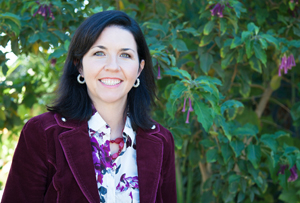Optimizing operations within an organization as large as the University of California can seem like a daunting task. Our work is governed by a multitude of policies, laws, and regulations. These exist to protect our university resources and our campus community, and we must ensure we operate with the highest of ethical standards.
However, it is critical that we identify non-value-added requirements and processes—steps that do not reduce risk, are cumbersome, and sometimes even add confusion and error.
During the 2013-14 academic year, the Business and Administrative Services (BAS) division undertook the development of a new operational ethos. Over time, this framework became known as "Stewardship as our Guidepost and Simplification as a Value." To learn more, you can access the BAS initiative webpage at: http://bas.ucsc.edu/bas-initiatives%20/index.html
Eight "must statements" emerged that shape this new way of looking at operations:
- We must put a value on the cost of time
- We must review where our team members can best spend their time in supporting the mission of the campus
- We must include our clients in the solution-development process
- We must understand the original intent of processes and policies
- We must ask if steps in the process truly are value-added
- We must ensure we have reviewed our interpretation of UC policy
- We must avoid one-off tools
- We must look at the policy implementation and processes at other UC campuses
In the spring of 2014, we identified our top priorities. For externally facing processes that span multiple units and involve multiple policies, we created a Solution Development Team (SDT). SDTs consist of colleagues from multiple units (both inside and outside BAS) who are charged with recommending process changes. Earlier this quarter, four SDTs were charged in the areas of travel, recruitment, procurement, and the entertainment reporting form (ERF).
Positive reinforcement is key to changing the culture of an institution, and this year we introduced annual BAS simplification awards. Fifteen team members have been recognized for their efforts to simplify processes in our division. We have also provided change-management training for more than 150 of our BAS team members to support them as they undertake adaptive changes in their operations.
Here are a few simplification highlights from year one:
- We revised the cumbersome multi-step Animal Care and Use Occupational Health Program medical clearance process to reduce the number of administrative steps required to clear personnel for work with animals. This is a critical advancement in our ability to support the research mission of UC Santa Cruz.
- We eliminated a burdensome one-off business process for hiring temporary staff and replaced it with a system that uses standard CruzBuy processes.
- We implemented a new package-delivery program for residential students, eliminating a cumbersome paper-based process. With nearly 200 packages delivered daily during peak times, the new process has cut down delivery time by more than 50 percent.
Much of our simplification work thus far has involved complex processes that impact multiple units and are governed by multiple policies. However, we are always looking for "quick wins"—changes that can be made quickly and easily. If you have an idea for such a win, please share it with us on our Quick Win portal.
We are in the midst of conducting this year’s process roundtables, interviews, and surveys to identify priorities for 2015. I hope you will engage with us as we work to optimize operations.



